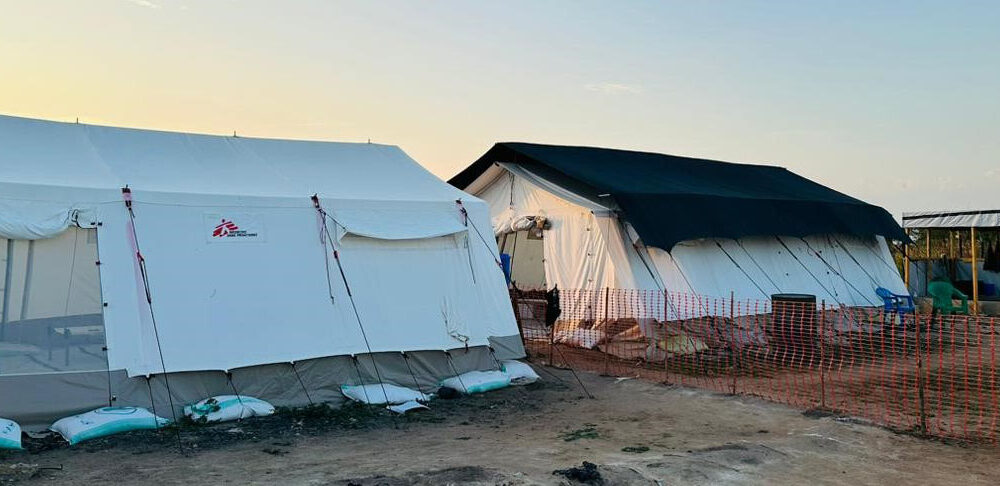By Philip Buda Ladu
Médecins Sans Frontières (MSF) has issued an urgent plea for increased action to combat a growing cholera outbreak in Upper Nile State.
The health organization has established a 20-bed cholera treatment unit (CTU) at Renk Civil Hospital to address the surge in cases.
Declared in Renk County by the Ministry of Health on October 28th, the water-borne disease has already claimed two lives and affected 45 individuals who were treated by MSF teams.
Many of the patients are refugees and returnees fleeing the ongoing conflict in Sudan, where a cholera outbreak was declared in August. However, the disease is also spreading among the local population.
The influx of refugees from Sudan, coupled with inadequate sanitation and hygiene conditions, has created a perfect storm for the rapid spread of cholera. Overcrowded living conditions in refugee camps and host communities are exacerbating the situation.
MSF noted that in the past weeks, an average of up to 800 people were entering Renk daily from Sudan, fleeing the war.
The organization is concerned that the situation could worsen if immediate steps are not taken to improve water, sanitation, and hygiene conditions.
“The urgent need to improve water, sanitation, and hygiene is paramount to prevent further spread,” said Emanuele Montobbio, MSF’s field coordinator for the Renk emergency program.
“The daily influx of hundreds of people from Sudan is overwhelming the resources and straining the capacity of the local health system” he added.
The crisis is not confined to Renk. In Malakal, the capital city of Upper Nile State, which is less than 300km away from Renk, MSF has also observed a sharp increase in cholera cases.
The organization has also established a cholera treatment unit at Malakal Town Hospital, and as of 12 November, in less than a week, 65 patients have been admitted to the facility.
Furthermore, MSF has established a larger Cholera Treatment Center (CTC) in Assosa, less than 10km away from Malakal Town Hospital, with a capacity of up to 100 beds to accommodate the growing number of patients.
MSF is urging all organizations operating in Upper Nile State to join forces and implement a comprehensive response to contain the outbreak.
“The current response in Upper Nile does not match the urgency of the situation. We’re calling for stronger, collaborative efforts from all organisations in Renk, and beyond particularly in Malakal, to manage the spread and prevent a further and a wider crisis, as soon as possible,” Montobbio said.
The medical charity highlighted key measures including: Strengthening water, sanitation, and hygiene infrastructure, conducting mass vaccination campaigns, expanding treatment capacity and raising awareness about cholera prevention.
“The risk of the cholera outbreak spreading beyond Upper Nile State is real,” warned Montobbio. “Immediate and concerted action is needed to prevent a wider crisis.”
The potential for the outbreak to spread beyond Upper Nile State is significant, given the high mobility of people within the country. And a coordinated response from all relevant organizations is urgently needed to contain the crisis and prevent further loss of life.
As the situation continues to evolve, MSF has expressed steadfast commitment to providing essential medical care and supporting the affected communities in Upper Nile State.




